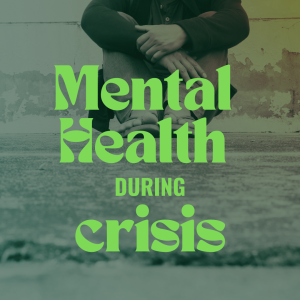Friendship is a sanctuary, a bond built on trust and understanding. But when a friend is dealing with a mental health challenge, that bond can transform into a crucial lifeline. Honestly, it’s a privilege to be a source of support, but it’s also a delicate balancing act, one that requires immense empathy for your friend and a deep commitment to your own well-being. This piece will show you how to be that steadfast anchor for a loved one without sacrificing your own resilience and mental well-being.
Understanding the Widespread Nature of Mental Health
The first step in supporting a friend is to understand their world better. We are in a new era of mental health awareness, where we can talk more openly about these struggles. Take the time to educate yourself on what they’re going through, whether it’s anxiety, depression, or another condition. This doesn’t mean you need to become a therapist, but rather that you can speak their language and offer more meaningful support. By understanding that a mental health condition is a medical issue, not a personal flaw, you can offer the compassion they need without judgment.
In fact, the numbers show just how everyday these experiences are. According to the World Health Organization, roughly one in eight people globally live with a mental disorder. Knowing this data can help us realize we can have people within our circle who might be struggling.
Being Presence is More Than Just Hearing
Often, the most powerful support we can offer is our presence. However, to truly help, you need to create a safe space where a friend feels comfortable sharing without fear. This means listening actively, putting phones away, making eye contact, and truly hearing what they’re saying. You don’t need to have all the answers. In fact, trying to “fix” their problems can sometimes be counterproductive. Instead, one great step to take is to validate their feelings with simple, empathetic phrases like, “That sounds incredibly difficult,” or “I’m so sorry you’re going through this.” This validation is a profound act of caregiving that shows them they are seen and heard.
Research from multiple studies consistently shows that a strong support system is a key factor in recovery. For example, some studies have found that individuals with a robust support network are up to 40% more likely to maintain their progress in mental health recovery compared to those with limited support.
This is a powerful reminder that your friendship is not just a nice gesture, it’s a critical component of their well-being.
Setting Boundaries; Your Own Mental Health Matters
Being a friend who provides this level of support is a form of caregiving that can be emotionally and physically taxing, so it is crucial to protect your own well-being. This is where your resilience comes into play. Remember, you can’t pour from an empty cup.
Informal caregiving, such as helping a friend or family member, has a documented impact on a person’s well-being. Studies have shown that between 30% and 70% of family caregivers experience clinically significant symptoms of depression. While your role as a friend may be different, the principle is the same. The emotional toll of carrying someone else’s burden can be immense.
Some active steps you can take to protect yourself are,
- Set clear
- Compassionate boundaries for yourself
It’s perfectly okay to say, “I’m here for you, but I need some time for myself today,” and it’s important not to feel guilty about it. Prioritize your own self-care, whether it’s a quiet walk, a hobby, or spending time with other friends. Your friendship isn’t a one-way street, and a healthy, present you is far better for your friend than an exhausted, resentful one. By prioritizing your own mental health, you not only protect yourself but also set a powerful example for your friend, showing them the importance of self-care.
Ultimately, a strong friendship is a two-way street, built on navigating challenges and becoming stronger together. The most impactful support you can give is by nurturing your own life, hobbies, and relationships, and leaning on your own support system. Your friendship is a testament to the power of human connection, a bond built on empathy, patience, and the shared understanding that proper support means caring for both of you.


